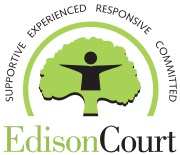“Pedophile” has many negative connotations. Unfortunately, it implies that a person is destined to have sex with children unless specifically prevented from doing so. Ironically, it was this belief in the inevitability of re-offense that was central to the establishment of our field’s first programs. Simply put, when the field of treating people who had abused began, professionals typically thought their clients were all at high risk.
Although research is unclear about the extent to which people can change their sexual interests, it is clear that not all people who sexually abuse are equally dangerous, that the majority of them are not known to re-offend, and that they re-offend less as they get older (Prescott, 2012 ).
It is hard for lay people to hear the word pedophile without associating it with “evil” and/or “monsters”. One typically sees it in the same paragraph as words such as “predator”. Sadly, rational discussion about resource allocation and science-based public policy become even more difficult under these circumstances.
Assuming that these clients have consented to treatment (and knowing that punishment alone does not reduce risk), do they also not deserve our best rehabilitative efforts? Do they not deserve humane and compassionate treatment providers? Do they not deserve the most empirically sound management in the community?
These question does not arise out of any desire to hug thugs or defend deviance. Rather, it is becoming clearer in the research that people can stay safer in our communities when they receive the same compassionate concern as any other person seeking to lead a better life. For example, researchers found that compassion-based programming can yield very impressive results in community aftercare services (Wilson, Cortoni, Picheca, Stirpe, & Nunes (2009).
Another way to look at this is to consider those who would experience victimization at some point in the future if professionals did not intervene. Do they not deserve our best efforts at maintaining the highest standards of care, including maintaining an empirically supported treatment approach? If the answer is yes, we have to conclude that people who abuse and are at risk to molest children may indeed “deserve” our most compassionate response in order to involve them meaningfully in interventions.
Thankfully, we are now at a point in our field’s development where we have effective means for helping people change and stay changed.

Add new comment